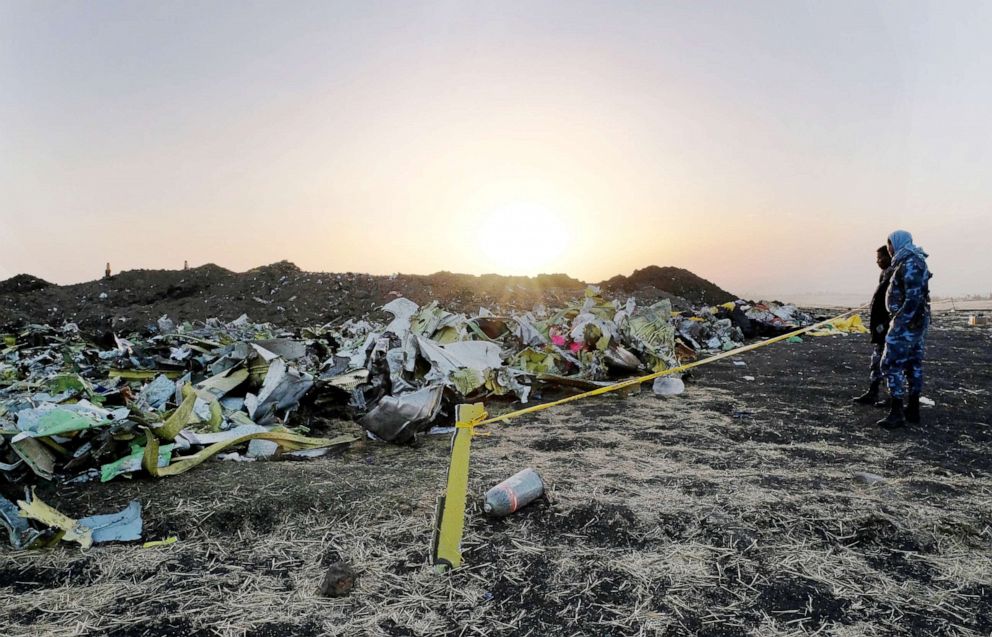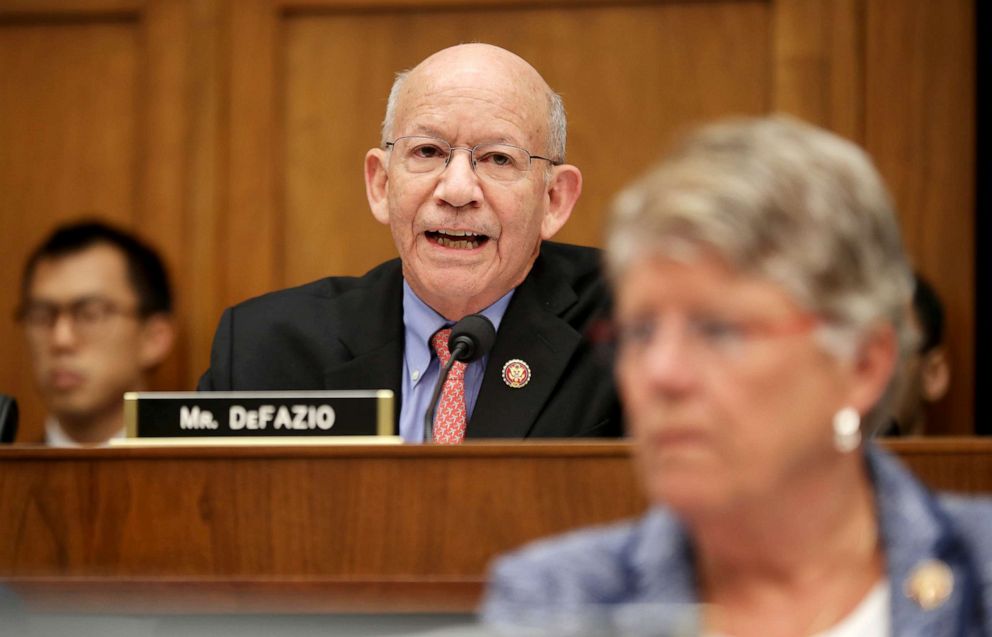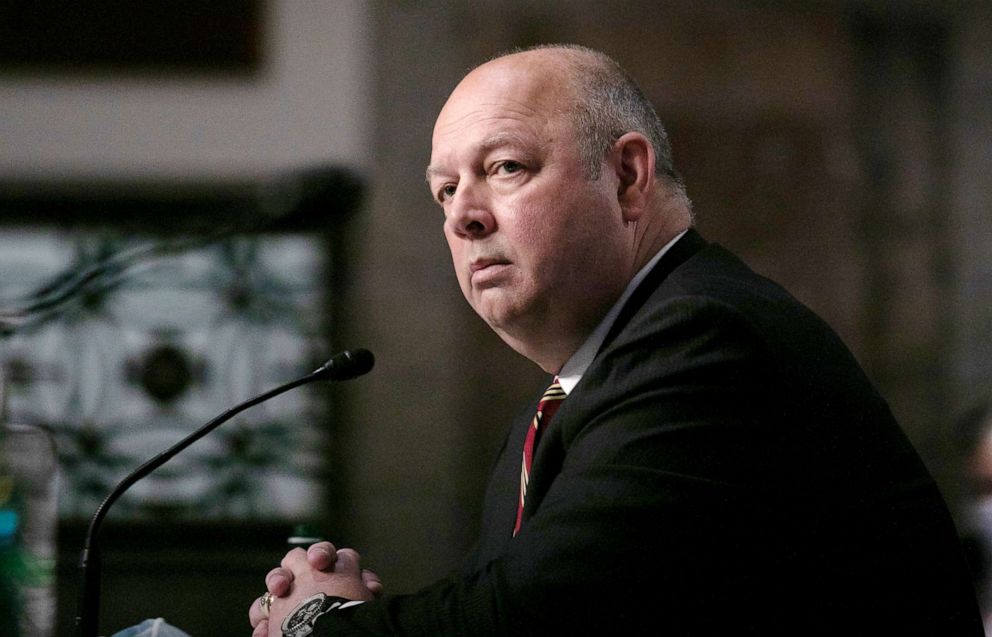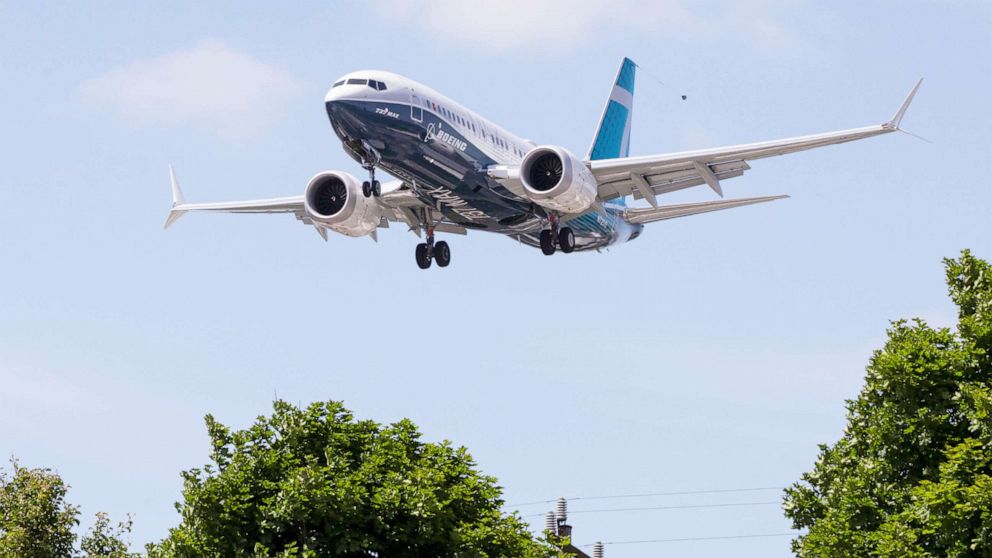House committee final report says Boeing, FAA failures to blame for deadly 737 MAX crashes
Paul Njoroge lost his entire family in March 2019, after Ethiopian Air Flight 302 crashed shortly after takeoff in Addis Ababa, Ethiopia.
"I stay up nights thinking of the horror they must have endured," Njoroge told lawmakers in a hearing on the incident last summer.
His mother-in-law, wife and three young children were flying on a Boeing 737 MAX and were victims of the second fatal accident involving the aircraft. Just months earlier, Lion Air 610, also a MAX, crashed into the Java Sea shortly after takeoff from Jakarta, Indonesia. Both crashes resulted in the deaths of 346 people.
"As the pilots struggled to keep the plane flying for six minutes, the terror that my wife must have experienced with little Rubi on her lap, our two young children beside her crying for daddy, and my mother-in-law feeling helpless beside her," Njoroge said. "The six minutes will forever be embedded in my mind."

Days after the crash in Ethiopia, the House Committee on Transportation and Infrastructure launched its investigation into the design, development and certification of the MAX family of aircraft and what exactly led to the two fatal crashes. On Wednesday, almost a year and a half later, lawmakers released a scathing report which concluded technical design flaws, faulty assumptions about pilot responses and management failures by both Boeing and the FAA led to the collisions.
The findings, released Wednesday by Democrats on the committee, come as civil aviation authorities and airline flight crews from the U.S., Canada, Brazil, and the E.U. meet in London this week to review Boeing's proposed training for 737 Max flight crews. This marks a significant milestone in the eventual ungrounding of the plane that has been modified for over a year.
"Boeing has now acknowledged some of these issues through its actions," the report states. "Unfortunately, Boeing's responses to safety issues raised in the 737 MAX program have consistently been too late."
What happened?
Investigators found that both crashes were tied to a software called the Maneuvering Characteristics Augmentation System (MCAS). MCAS was designed to help stabilize the 737 MAX after heavier, re-positioned engines placed on the aircraft caused the plane's nose to point too far upwards in certain circumstances.
In both crashes, incorrect data from a faulty sensor caused MCAS to misfire, forcing the plane to nose down repeatedly, even as pilots struggled to regain control and gain altitude. MCAS was not mentioned in the pilot manual.
The National Transportation Safety Board (NTSB) found that the pilots in both crashes were bombarded with multiple alarms and alerts in the cockpit before the planes crashed. The blaring alarms likely caused further confusion and made an already stressful situation worse, according to the NTSB.

In December, House Democrats released a Federal Aviation Administration (FAA) risk report which showed the potential of more than 15 fatal crashes over the life of the Max fleet -- about 45 years -- if no change was made to MCAS.
Corporate pressures and culture of concealment
The report details "tremendous financial pressure" on Boeing and the 737 MAX program to compete with its European counterpart, Airbus.
The report detailed incidents they say illustrated such pressures, including the installation of a countdown clock by senior program officials "to remind staff about the MAX's schedule."
The report also detailed an incident in which a plant supervisor attempted to schedule a meeting with the 737 MAX general manager about "safety concerns" with production and schedule pressures.
When the supervisor later met with the general manager, he cited his service in the Navy and that "in the military they would temporarily halt production if they had the kinds of safety problems [he] saw on the factory floor."
According to the report, the general manager reportedly said, "The military is not a profit-making organization."
Such pressures "resulted in extensive efforts to cut costs, maintain the 737 MAX program schedule and avoid slowing the 737 MAX production line," the report said.
FAA oversight and 'failure to ensure the safety of the traveling public'
The report concluded that the Federal Aviation Administration's (FAA) oversight was "hampered by poor, disjointed FAA communication among the agency's own internal offices responsible for certifying new critical 737 MAX systems, including MCAS."
"It feels like we are showing up to a knife fight with Nerf weapons," one FAA whistleblower told the committee. "It is a challenge to be an equal match with Boeing in the meetings/conversations."

Such "ineffective communication and lack of coordination" on those key safety issues put the flying public in danger, lawmakers concluded.
In response to the report, the FAA said in a statement that it is "committed to continually advancing aviation safety and looks forward to working with the Committee to implement improvements identified in its report."
"We are already undertaking important initiatives based on what we have learned from our own internal reviews as well as independent reviews of the Lion Air and Ethiopian Airlines accidents," the statement continued.
What happens now?
The findings support lawmakers' larger push for a reform of the aircraft certification process in the U.S. They also come as the Senate Committee on Commerce, Science, and Transportation holds a markup on a bill that would strengthen the oversight over the certification process.
"The fact that a compliant airplane suffered from two deadly crashes in less than five months is clear evidence that the current regulatory system is fundamentally flawed and needs to be repaired," the report says.
Currently, under the Organization Designation Authorization (ODA) program mandated by Congress, some of the aircraft certification process is delegated to manufacturers like Boeing. Critics of the ODA program said it was this delegation that created a conflict of interest.
"The problem is it was compliant and not safe, and people died," Committee Chairman Peter DeFazio, D-Ore., said in a call with reporters Tuesday. "So obviously, the system is inadequate."
DeFazio said he is "working closely with Republicans in the hope of coming to an agreement on a reform proposal in the very near future," but did not say if such legislation would be introduced before the end of the current session.
ABC News' Mina Kaji and Sam Sweeney contributed to this report.




